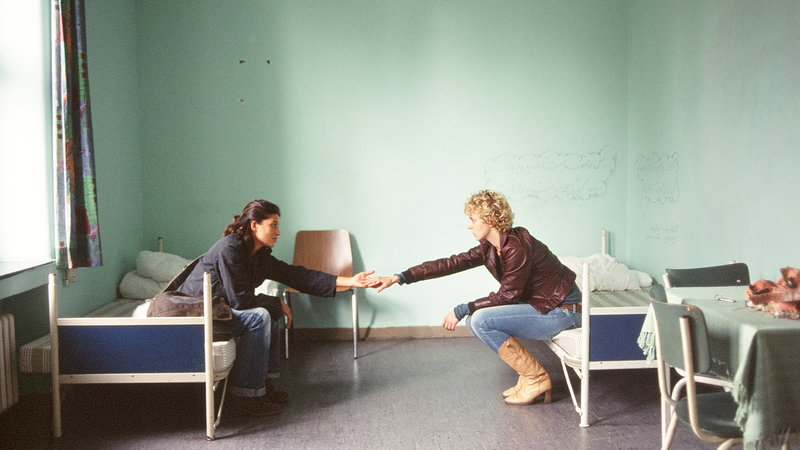Turkish-German director Fatih Akin's (Head-On) masterful new film tracks the emotional arcs of six people – four Turks and two Germans – as they criss-cross through love, tragedy and borders.

"An intriguing parallel-life drama of co-incidence and happenstance: the near-misses and near-hits of human contact." — Peter Bradshaw, The Guardian
Screened as part of NZIFF 2007
The Edge of Heaven 2007
Turkish-German director Fatih Akin’s (Head-On) masterful new film is a measured and contemplative drama in which the lives and emotional arcs of six people – four Turks and two Germans – criss-cross through love and tragedy. It starts in Germany with Turkish immigrant Ali, a crusty but charismatic septuagenarian who meets beautiful prostitute Yeter and asks her to move in with him. Ali’s son Nejat, a university professor, is quietly tolerant of his father’s patriarchal ways, but deeply affected by the fatal confrontation that ensues. Shifting to Turkey, the film then introduces Yeter’s 27-year-old political activist daughter Ayten and her German girlfriend. How Nejat and Ayten’s lives intersect is a matter of personal and political drama, unfolding with clarity and a profound sense of the fragility of human connections.
“The point at which a good director crosses the career bridge to become a substantial international talent is vividly clear in [Akin’s] utterly assured, profoundly moving fifth feature …[which] takes the German-born Turkish writer-director’s ongoing interest in two seemingly divergent cultures to a humanist level that’s way beyond the grungy romanticism of his 2003 Head-On or the dreamy dramedy of In July (2000). …The picture has a lean, almost procedural style, in which every scene and line of dialogue counts. Akin doesn’t try to hide the plot’s coincidences or Swiss watch-like precision, which is given human resonance by the flawless playing of the six leads. By the time the second segment segues into the final one, the helmer’s long-burn approach packs a considerable emotional wallop in a quiet, inclusive way.” — Derek Elley, Variety